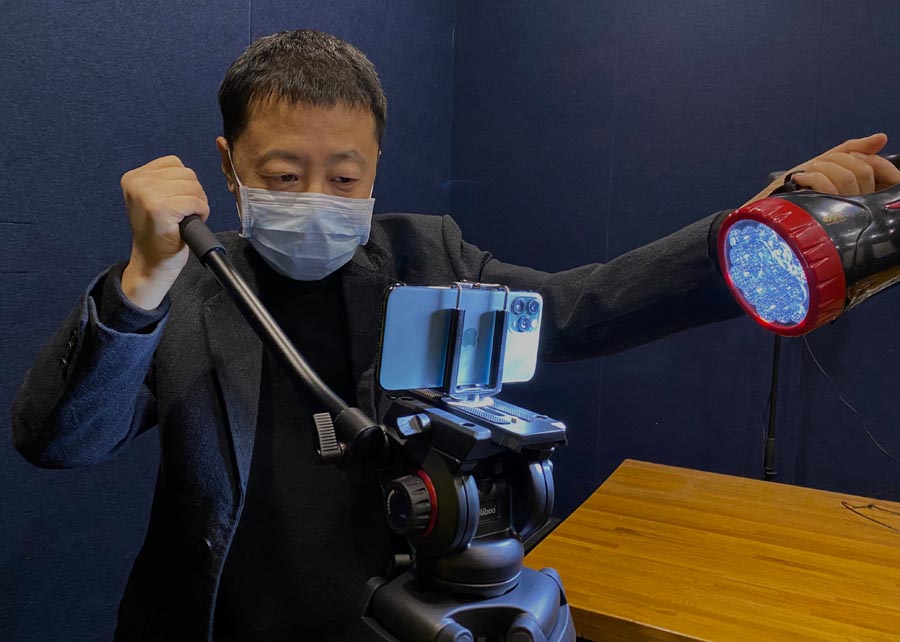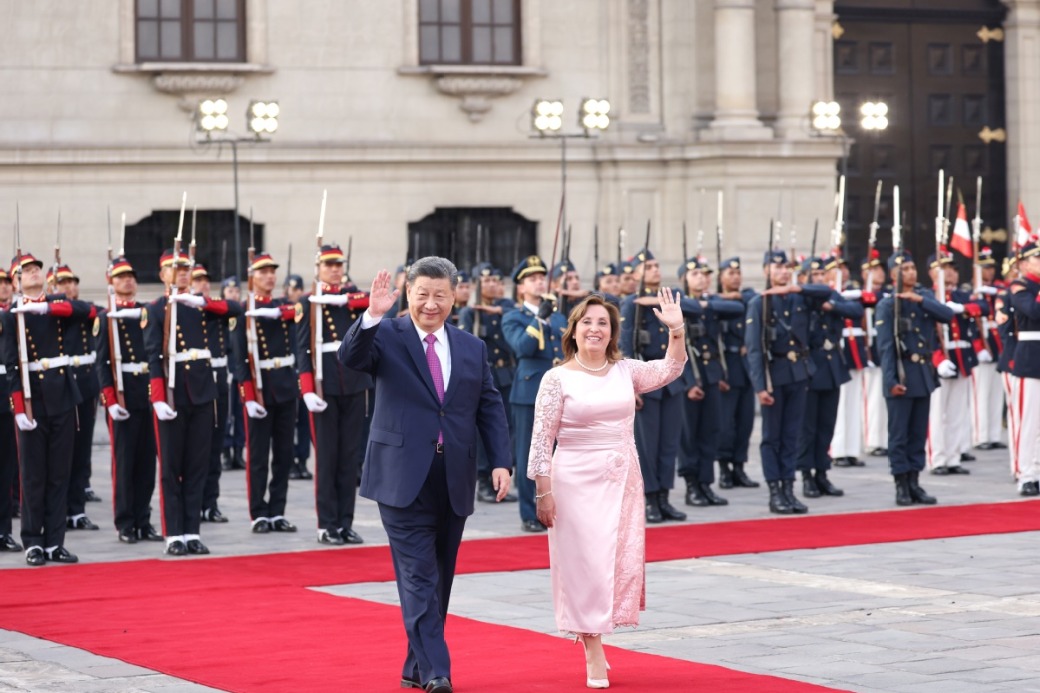Cultural sector finds new ways to tell stories


Silver screen reset
From the 100-plus day closure of nearly 70,000 screens nationwide, China's film and TV industry has seen blockbusters withdrawn and shooting suspended.
The China Film Administration estimates that box offices will face a loss of more than 30 billion yuan ($4.2 billion) this year, nearly half last year's total take.
But China-the second-largest market in terms of annual box-office revenue-is seeing signs of recovery, as noted by some industry insiders attending the two sessions.
Film director Jia Zhangke, a deputy to the 13th National People's Congress from Shanxi province, has a positive take on the suspension of business.
"China's film industry had maintained a high annual growth rate for many years, drawing floods of hot money but also creating a waste of resources," he said.
In recent years, China produced over 1,000 feature-length films annually, but most couldn't be screened in theaters due to fierce competition, he added. He predicted that the suspension will "squeeze out bubbles and shift the filmmakers' pursuit of quantity to quality".
Jia is one of China's most acclaimed directors internationally, particularly for Still Life, which won the Golden Lion at the 2006 Venice Film Festival. He said the pandemic has provided inspiration.
In March, he was invited to join six other directors to make short films for a project at the Thessaloniki International Film Festival in Greece, held online last month.
Seeing the project as a way to support fellow filmmakers amid the pandemic, Jia used a smartphone to shoot Visit, a three-minute short, in just one day. It has just three actors-Jia and two friends.
" (In the film), you'll see how social etiquette like shaking hands, easygoing atmospheres and getting along with acquaintances have been forced to change," he said.
"But the film ends with on a hopeful note, reflecting the fact that I really miss the days when people got together."
Speaking about the Pingyao International Film Festival in Shanxi, scheduled for Oct 10 to 19, Jia-the organizer-said his team has started preparing a video connection plan with foreign filmmakers in case the outbreak has not been globally contained by then.
Exemptions
The development of the internet may rewrite the rules of China's showbiz industry, as some films have premiered on online streaming platforms recently.
Nevertheless, Zhang Guangbei, a veteran actor and member of the 13th National Committee of the CPPCC, believes watching films in cinemas will survive. "Cinema is a special art form that provides an immersive experience, and needs the audience to sit quietly in a confined space," the 60-year-old said.
The Ministry of Finance and the China Film Administration recently announced that Hubei province, one of the places hardest hit by the outbreak, would be exempt from paying the National Film Industry Development Special Fund levy-amounting to 5 percent of box-office revenue-this year.
The policy will apply to the rest of the country for the January to August period. In addition, all cinemas have been exempted from paying value-added tax-3.3 percent of gross box-office receipts-this year.
Zhang is excited to see policies enacted to boost the beleaguered industry. In addition to this stimulus, shooting is gradually resuming.
Before the two sessions began, he was in Anhui province to shoot his new film, the poverty alleviation-themed Great Things. Filming of the movie, based on a true story, was scheduled to start in early February, but it was postponed.
Zhang said the industry is recovering. "Most of the greatest films (in China) were born in historic moments," he said.
"I heard that groups of filmmakers and TV workers have already started scripting (coronavirus-themed) stories," he said. "If I am invited to join in, I will not hesitate."
























